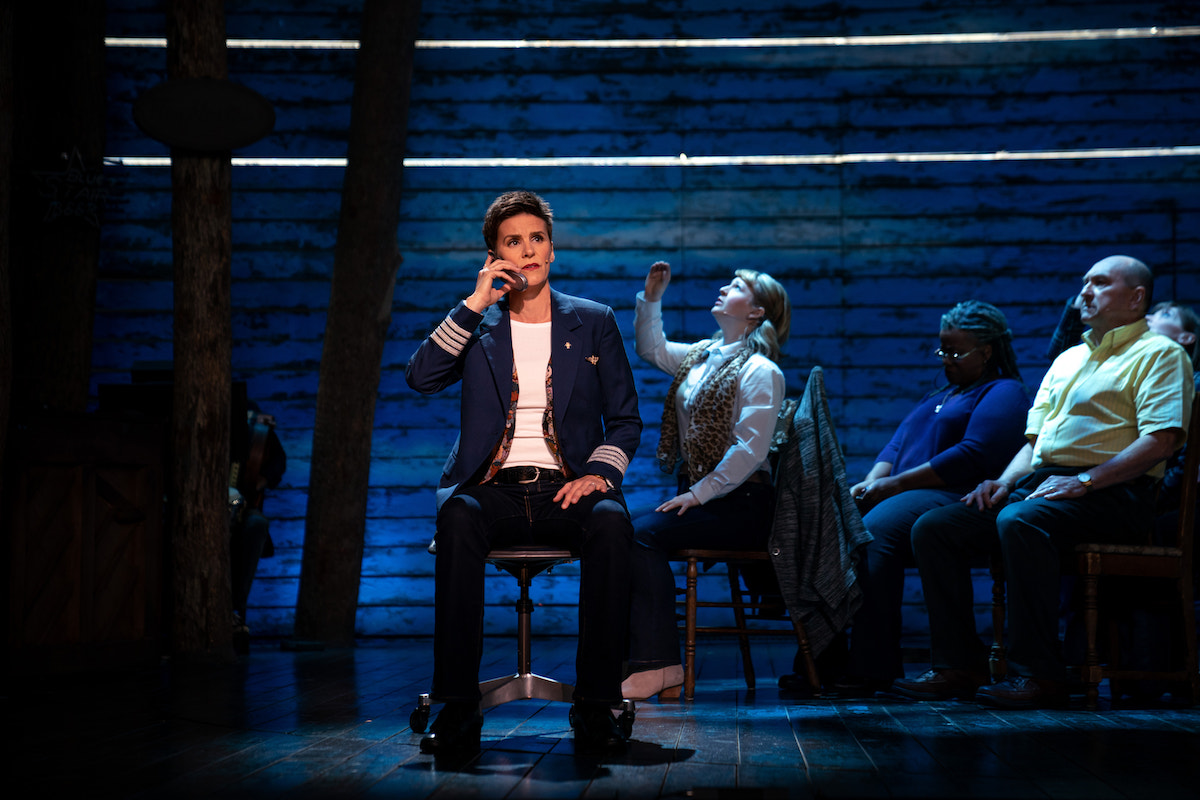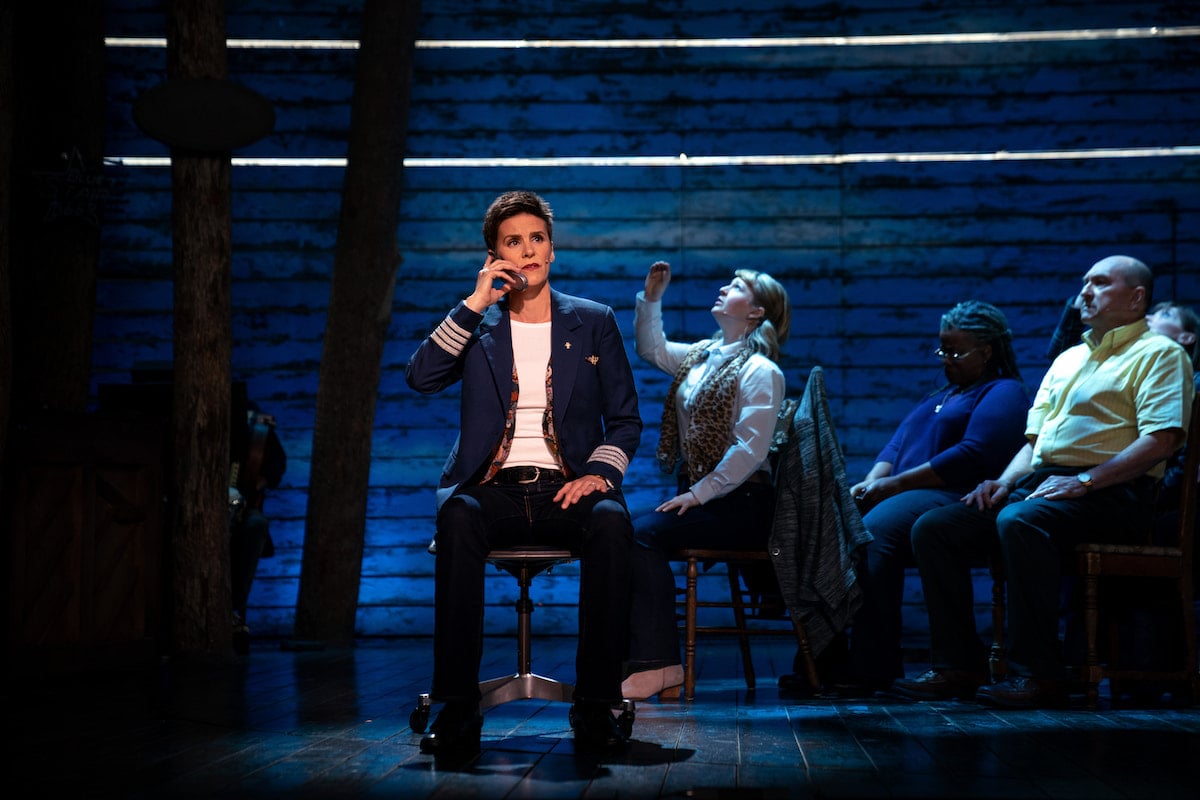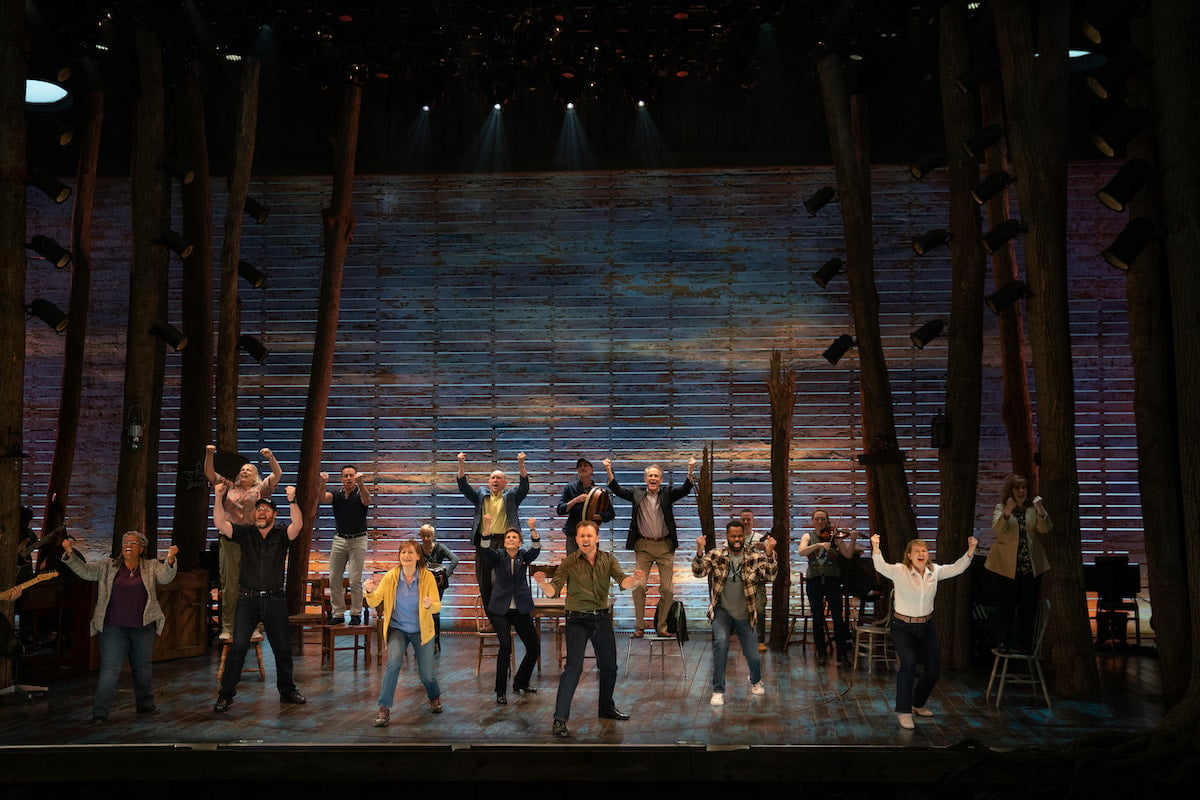
‘Come From Away’ Film Review: 9/11 Musical Highlights Lesson Americans Have Spent 20 Years Failing to Learn
The Come From Away film debuted on Apple TV+ on Sept. 10. Its timing couldn’t be more apt. And not just because it was filmed to commemorate the 20th anniversary of the Sept. 11, 2001 terrorist attacks. The staged production was filmed live during the coronavirus (COVID-19) shutdown, marking the first Broadway performance since the pandemic shut down live theater. And while 9/11 doesn’t seem like the best subject for a musical, this story finds its perfect home in live theater. It’s great that this show can now be watched by millions.
The Come From Away film delivers a beautiful example of humanity that will uplift any viewer. But some may also find themselves feeling waves of sadness whenever the Canadian townspeople say, “You would have done the same.” Based on what we’ve seen over the last 1.5 years of American life, I can’t confidently say we would.

Is ‘Come From Away’ a true story?
Come From Away tells the true story of the Canadian town of Gander and its townspeople’s incredible acts of humanity on Sept. 11, 2001. Gander is a tiny town in Newfoundland that had a population of less than 10,000 people in 2001. The town has an airport that was once a bustling hub for planes to refuel on long journeys. But technological advances in aviation made pit stops in Gander unnecessary. As one of the characters in Come From Away notes, planes being instructed to land in Gander now meant something terrible had happened.
When the American airspace was closed following the attacks, 38 planes were redirected to the Canadian town, nearly doubling its population instantly. The passengers were stuck on their planes for an entire day when they arrived, many unable to reach their family members via phone. Most of them had no idea what had happened in the United States until they disembarked.
While they waited anxiously to leave the aircrafts, the people of Gander dropped everything to help prepare accommodations for the 7,000 displaced passengers and flight staffs. The community gathered food, toiletries, bedding, clothes, medicines, and most importantly, phones. The town also figured out how to communicate with non-English speakers, made accommodations for everyone’s various faiths, and cared for the many animals on the planes. They kept this up for five days until the American airspace was reopened. And they made lifelong connections along the way.
Apple TV+’s ‘Come From Away’ film takes on new meaning because of the pandemic
In Come From Away, each member of the cast plays multiple characters. And each character is based on real people in Gander and the plane people. One of those characters is Beverley Bass, the first American female pilot to be named captain. Played by Jenn Colella (who earned a Tony nomination for her performance), one of her songs reveals Bass’ colleague, Charles F. Burlingame, was the captain of American Airlines Flight 77—the plane that hit the Pentagon. Other characters are Gander’s then mayor Claude Elliott (who is disappointed by U.S./Canada relations during the pandemic), and Nick and Diane Marson—a married couple who met during those five days in Gander.
The musical is bookended by the song “Welcome to the Rock,” a fitting opening number that encapsulates the town’s culture. It’s fiercely positive, all about community, and states that all who “come from away” are welcome in Gander. And their actions certainly prove that. The musical is performed in one act and never slows its pace. It’s mostly sung-through, with some dialogue added into the songs. And much of the dialogue is direct quotes from peoples’ experiences during those five fateful days.
The Come From Away film will warm your heart and remind you of the profound beauty of collectivism during tragedy. Gander’s seemingly unending supply of compassion makes you feel grateful that kind of kindness exists. Its joyous moments will remind anyone who witnessed the events of Sept. 11 (in person or on the news) of how that horrific day brought people together. But for American viewers, it may also produce pangs of shame.
Come From Away is supposed to be an inspiring tale of resilient humanity in the midst of horror. And it certainly succeeds on that front. But the timing of its release contextualizes the production in a new way. And it stings.

‘Come From Away’s beautiful message persists, but watching it in 2021 stings
Twenty years after the day that changed America’s collective psyche forever, we find ourselves in the middle of another horrific mass trauma. Except this time around, that trauma has pressed on for almost two years with still no end in sight. According to The Atlantic, coronavirus deaths in the U.S. match 9/11’s death toll every three days. And yet, there are still millions of Americans refusing to get vaccinated and wear masks to help their fellow citizens. Misinformation runs rampant. Distrust is at an all-time high. Unmasked COVID-19 deniers cough on people in grocery stores for fun. Healthcare workers buy fake COVID-19 vaccination cards.
As Elliott told CTV News in 2020, “When we come to those times of tragedy in our life, we need everybody helping each other.” In the U.S., we have not seen that happen enough.
Sept. 11, 2001 marked the beginning of two decades worth of the toxic American individualism we see today. The fear the terrorist attacks instilled in us all—and the government action that fear produced—progressed and evolved over the last two decades into distrust, otherism, extreme xenophobia, and a fundamental lack of care for other peoples’ wellbeing. I was 8 years old in 2001. I am now 28. And growing up over the last 20 years has taught many millennials that we cannot expect communities and government officials to help people when it’s needed most. Our country’s capacity for caring for others has corroded. And it can all be traced back to that Tuesday morning in September.
Every time someone in Come From Away said “You would have done the same” to an American character, I felt a pang of shame. Because the last 1.5 years of American life has proven just how much Americans have failed to learn the lesson Gander taught. We’ve spent the last 18 months watching as other countries provided aid to their people without blinking an eye. And what’s worse is the U.S. has everything it needs to provide that same aid. It just chose not to. And there are too many American citizens who don’t think that’s a massive failure.
What’s even more troubling is Americans are now in a place to act like Gander. With countless people fleeing Afghanistan in search of safer harbors, I fear we will fail to rise to the occasion to help these people like Gander helped us. If we won’t do it for our own people, what makes us think we would do it for others? Let alone a group of innocent civilians we’ve spent two decades unjustly demonizing.
I genuinely hope I’m wrong. But every time someone said “You would have done the same,” I found myself thinking, “Oh, God. You really don’t know how much we wouldn’t.”


